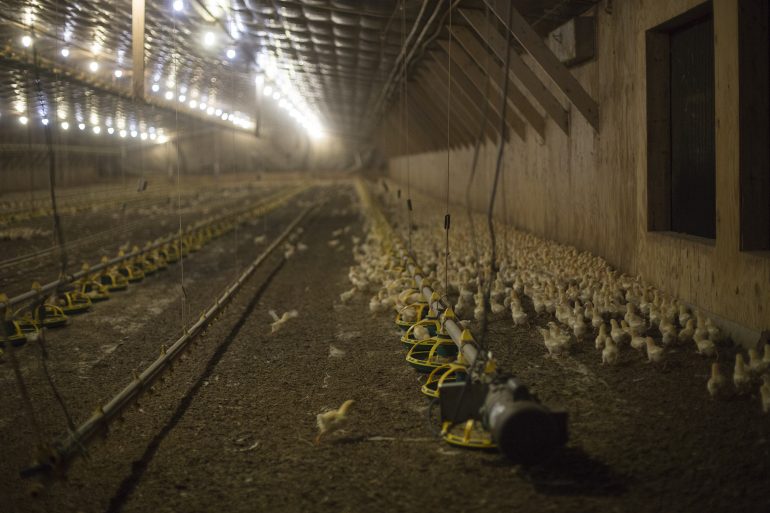ANNAPOLIS — Agriculture represents around $8.25 billion of Maryland’s economy. With the sometimes conflicting interests of helping farmers and reducing pollution in the soil and Chesapeake Bay, lawmakers are trying to find ways to accomplish both goals.
At meetings with the House Transportation and Environment Committee as well as the House Rural Caucus, Maryland Secretary of Agriculture Joseph Bartenfelder said one of the top priorities for 2016 is preventing avian flu.
As ducks and geese, the primary carriers of high path avian flu, migrate over Maryland this winter, the risk for poultry farms — the state’s No. 1 agricultural sector — is high, according to Bartenfelder
“We are as prepared as we can be, knowing what lies ahead,” Bartenfelder said Wednesday.
Bartenfelder said his office has participated in drills and had drafted a declaration of emergency in case avian flu comes to Maryland chickens. He said the U.S. Department of Agriculture’s regional veterinarian called Maryland’s preparations “lightyears ahead” of midwestern states.
Farmers in Maryland have other concerns, as well. Several legislators from the rural caucus said regulations and permitting requirements are slowing down farmers in their districts.
“It’s been ramping up on the shore, they just can’t get their permits for these operations,” said Delegate Jay Jacobs, R-Caroline, Cecil, Kent and Queen Anne’s. “These past several years, it’s been permitting from stormwater management and CAFO (contained animal feeding operation) permitting, and it’s the major industry on the shore…put yourself in that poor chicken farmer’s shoes.”
“I tell you, it’s a scary time,” he continued.
Bartenfelder and Maryland Secretary of the Environment Ben Grumbles said part of the problem is not having enough manpower to speed up processing permit requests, and some regulations need to be streamlined and scaled back.
“It’s very important to us to make sure that local water quality and public health safeguards are kept in place but also there is a growing need to revisit statewide regulations,” Bartenfelder said.
Jacobs said farmers in Caroline County are having trouble getting contained animal feeding operation permits, so their fully built chicken houses are empty.
Delegate Wendell Beitzel, a Republican representing Garrett and Allegany and the chair of the rural caucus, said farmers in Western Maryland are facing slow-moving permit procedures to build manure storage facilities.
Delegate Haven Shoemaker, R-Carroll, said that BAT — best available technologies — for water regulations are “killing us in Carroll County.”
Another major priority for Grumbles’ office is managing the amount of phosphorous and nitrogen in the soil and in the Chesapeake Bay through a program called nutrient trading.
Nutrient trading would allow farmers who implement best practices to remove nutrients from the water to earn credits that can be sold to stormwater utilities and other buyers. Grumbles said this will provide an extra revenue source for farmers while speeding up Chesapeake cleanup. He said he hopes to start some pilot programs in 2016 to begin studying nutrient trading and taking steps toward implementation.
–30–

